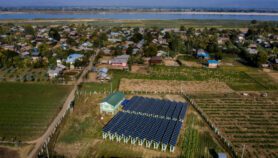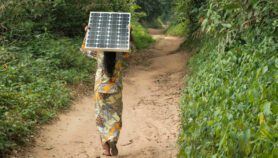By: T.V. Padma
Send to a friend
The details you provide on this page will not be used to send unsolicited email, and will not be sold to a 3rd party. See privacy policy.
[NEW DELHI] India’s plans to reduce costly petrol imports by using ‘biofuels’ have been hit by bureaucracy and supply problems, an international workshop has heard.
The commission also proposed increasing the proportion of biofuels used in India from five to 20 per cent by 2012.
But both plans are facing hurdles, according to Rathin Mandal, a senior advisor in the Planning Commission, who spoke last week in Delhi at a workshop on biofuels.
Mandal said that in April the Indian government withdrew the order making ethanol-petrol blends compulsory in nine states, mainly because of the rising cost of ethanol.
The move was made with little of the fanfare that accompanied the initial announcement and went largely unreported in India.
Meanwhile, the commission’s proposed ‘biodiesel mission’, which was due to launch in April, remains delayed. The commission is waiting for clarification on several details from the Ministry of Rural Development, which is charged with implementing the mission.
Mandal told SciDev.Net that India could not afford to delay because biodiesel was the country’s only viable alternative to fossil fuels. Its efforts to harness wind and solar power have failed to take off, and the use of hydrogen as a fuel source is still at the conceptual stage.
Thailand and Indonesia are tapping the potential of palm oil as a fuel. Indian scientists, meanwhile, have high hopes for Jatropha, which tolerates drought well.
Meeting the Planning Commission’s biodiesel mission targets would require planting 11 million hectares with Jatropha to produce 13 million tonnes of biodiesel a year. India has an estimated 40 million hectares of ‘wasteland’ on which the trees could be grown.
India imports 70 per cent of its petrol — some 111 million tonnes in 2004-2005. This is projected to more than double by 2020.













